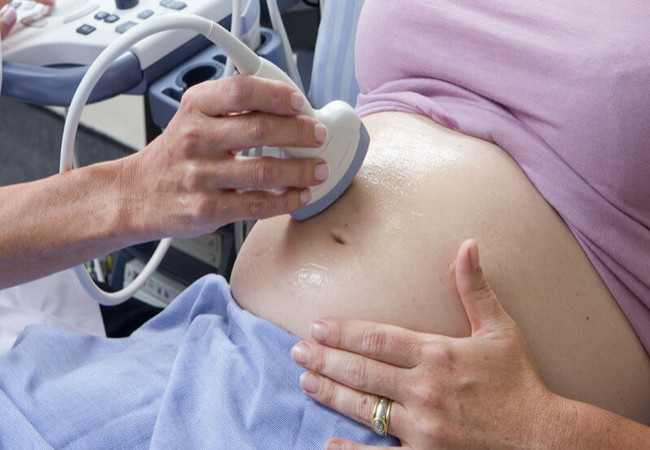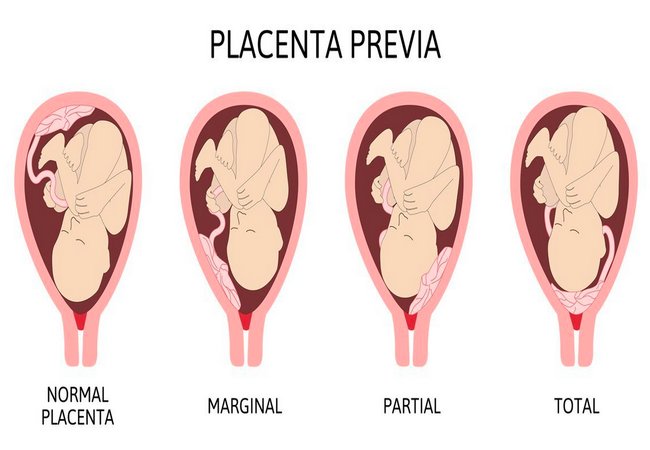Polyhydramnios: Types, Causes and Symptoms
What is Polyhydramnios?
An excess of liquor amni termed as polyhydramnios or hydramnios. It is arbitrarily defined as more than 2000 ml of liquor amni, because it becomes clinically obvious beyond this limit. Normal amniotic fluid volume is 500 -1500ml.

Types of Polvhydramnios:
Clinical type:
- Chronic polyhydramnios- onset is insidious taking few weeks. Characterized by gradual accumulation of amniotic fluid.
- Acute polyhydramnios- onset is sudden taking few days. Characterized by sudden and rapid accumulation of amniotic fluid.
Polyhydramnios Causes:
A. Fetal Causes:
- Fetal Abnormalities: Fetal anomalies such as hydrocephaly, anencephaly, esophageal atresia, fetal kidney problems, duodenal atresia, tracheoesophageal fistula, skeletal dysplasias, spina bifida and diaphragmatic hernia that can hamper the baby’s ability of swallowing and processing the amniotic fluid properly.
- Fetal Anemia: RBC (red blood cells) deficiency in the baby.
- Hydrops Fetalis (fluid accumulation or edema in two or more fetal compartments).
- Chromosomal Abnormalities: Inheriting abnormal chromosomes responsible for genetic disorders like Down’s syndrome ánd Edwards’ syndrome.
- Fetal macrosomia: (having a baby too large for the gestational age).
B. Placental Causes:
- Twin-to-Twin Transfusion: An abnormal condition occurring when carrying identical twins, in which one twin receives excessive amounts of amniotic fluid while the other has little.
- Placental Blood Vessel Abnormality: Abnormal blood vessel growth on the placenta (chorioangioma).
C. Maternal Causes:
- Infectious Conditions: Toxoplasmosis, parvovirus, herpes simplex, rubella or cytomegalovirus infections affecting the mother may also reach the fetus, causing various abnormalities.
- Maternal Diabetes Mellitus (gestational or pre-existing): Abnormal blood sugar levels in the mother may lead the baby to produce excessive urine that increases the amniotic fluid volume.
- Maternal Rhesus Disease: Rhesus disease causes the mother’s antibodies to cross the placenta, often resulting in fetal anemia – one of the principal causes of Polyhydramnios.
- Blood incompatibilities between the mother and the baby.
- Hypertension.
- Pre-eclampsia.
Sign and Symptoms of Polyhydramnios:
Clinical Features of Polyhydramnios:
Symptoms of Polyhydramnios:
- Undue enlargement of the abdomen.
- Feeling of tense abdomen.
- Excessive movement of the fetus.
- Respiratory distress, palpitation, flatulence, dyspepsia.
- Edema, varicosities in legs.
Signs of Polyhydramnios:
- Patient is dysphonic in lying position.
- Abdomen is hugely enlarged with tense shiny skin.
- Features of preeclampsia may present.
- Fundal height is more than the period of amenorrhoea.
- Girth of the abdomen at the level of umbilicus is more than 100 cm before term.
- Fluid thrill is present; ballottement of the fetus is easy.
- Fetal parts are not well defined.
- FHS is not distinct.
- Cervix is partially taken up or dilated.
More questions related to this article:
- Define polyhydramnios.
- What is polyhydramnios?
- What do you mean by polyhydramnios?
- What are the causes of polyhydramnios?
- Mention the type of Polyhydramnios.
- Mention the Clinical features of polyhydramnios.
- Write down the Clinical features of polyhydramnios.











